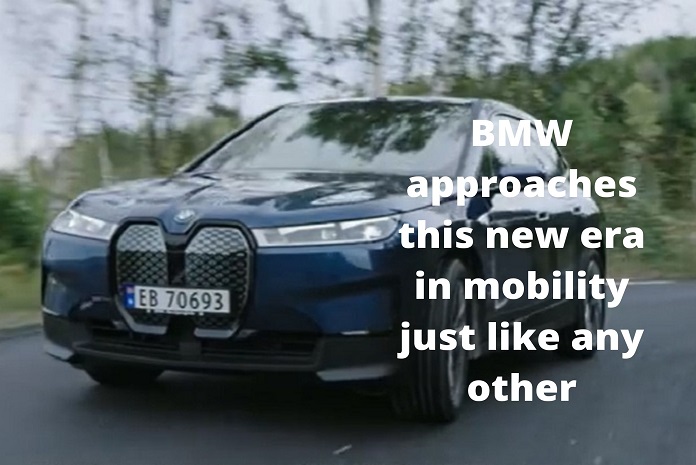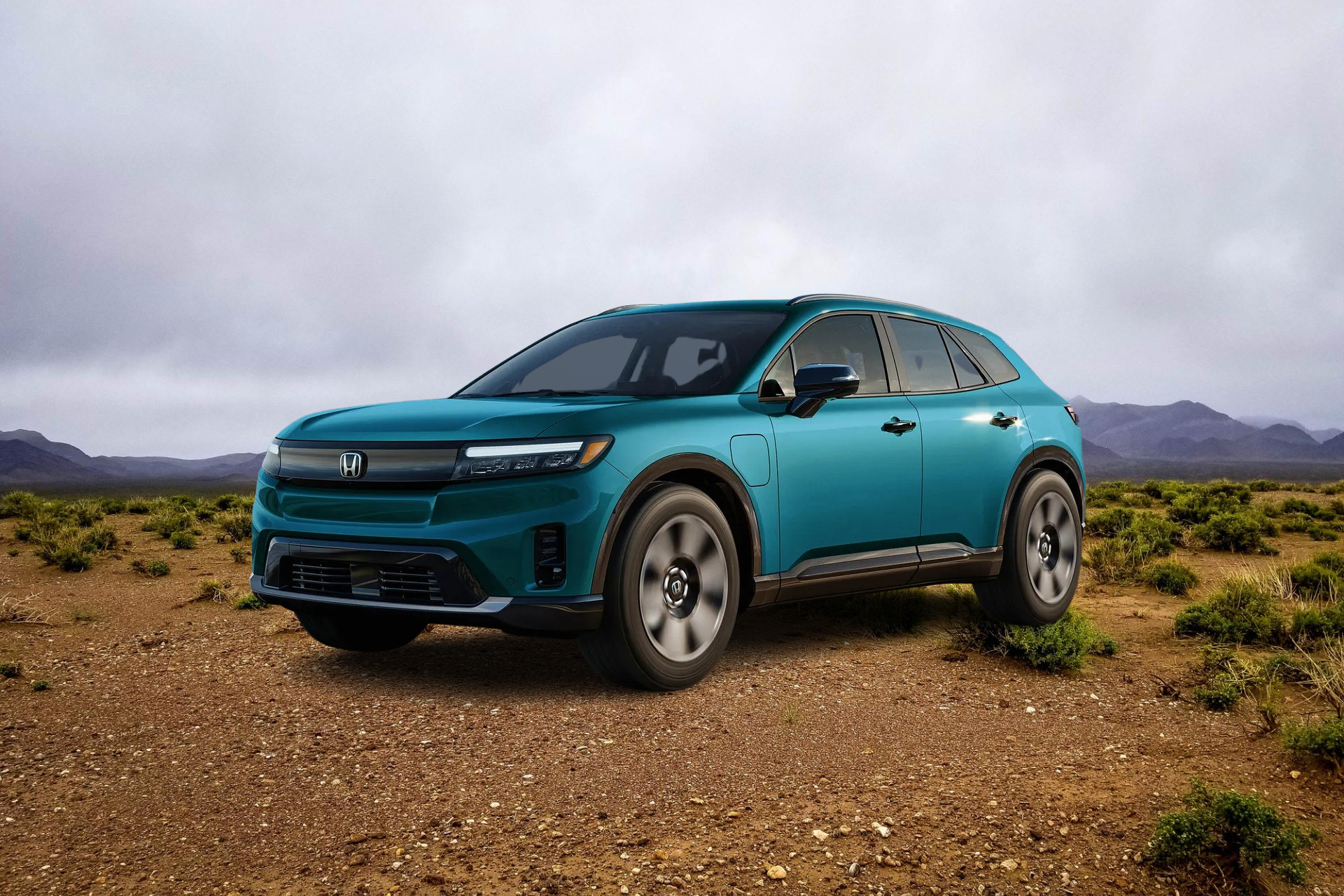BMW iX Electric SUV – The Ultimate Driving Machine
BMW iX (which stands for “Inclusive, Intelligent and Xperience”) weds a panoramic driving experience and a new level of technology with BMW i. It is the ultimate driving machine that provides the driver with an inclusive, intelligent xperience that is unsurpassed in its class. The new electric BMW iX xDrive50 Sports Activity Vehicle offers a range of up to 613 km* and, with 523hp, effortlessly powers from 0 to 100 km/h in 4.6 seconds. (BMW iX xDrive 40: range of up to 414 km* and 0 – 100 km/h in just over 6.1 seconds). The battery comprises one unit each of lithium-ion polymer cells with a capacity of around 800 Wh per kWh.
This should be enough to get you from 0 to 60 mph in 3 seconds flat. If you can get the accelerator pedal just right, you will be able to achieve speeds in excess of 200 mph on the highway.
At this point I want to quickly address several common objections about our product:
- The car itself is too expensive for most people’s budgets; • BMW claims it has over 420kms per charge; • It looks like an Aston Martin before it even hit the market; • It sounds like an Aston Martin before it even hits the market; • The rear sensors don’t work properly; • It’s too heavy!; • I don’t know enough about cars! • We didn’t build this car based on any scientific study or peer review. That said, we do build products out of our own blood and sweat—it just so happens that we don’t have many customers yet who have had the opportunity to test drive an iX but they will after we launch them into production as we work towards building out distribution channels around the globe (iTunes, Amazon, etc.).
Intelligent Shy Tech
The BMW iX is the first all-electric SUV to be built by a major automaker. It’s an evolution of the compact BMW X2, which has been on sale since 2008 and is considered a small step forward for BMW and its recent competitors. The next edition of this series will be powered by BMW’s new i3 electric vehicle.
The BMW iX is the first car in Europe to be developed, tested, and launched with a full lithium-ion battery system (allowing it to travel an impressive 425 miles on a single charge).
With its ability to accelerate from zero to 60 in less than four seconds and a top speed of 186 mph, the BMW X3 1 Series sedan is already one of the fastest cars on sale in Europe. The upcoming BMW iX SUV will give customers yet another option for long-distance driving.
Panorama Sky Lounge
The BMW iX electric sport utility vehicle was announced at the Geneva Motor Show in March and is the culmination of a long tradition of innovation in the automotive industry.
While it is true that we have been working on this car for some time, no one expected it to hit the market any sooner than 2014. To us, this is not just another car, but a completely new experience that will shape our future in every aspect. We are proud to announce that BMW iX will be offered as a top-of-the-line option with all BMW models starting in 2014.
The design of the car was conceived with astute attention to detail and led by our design director, Thomas Weindorf. This includes a monolithic body form with a sleeker silhouette and sharper creases compared to other similar vehicles out there, including a specifically designed door panel for increased interior space. The interior has been slimmed down for optimal ergonomics, but still offers luxury and comfort for those who want it.
The panoramic roof gives an even bigger picture view without the need for air ventilation or additional rear seats — ideal for families or large groups. The BMW iX is designed to be able to travel up to 425 kilometers on one charge using standard lithium-ion batteries, while only using around 100-kilowatt hours of energy when fully charged — which means you’re getting more range than Tesla Model S driving around Europe at twice the speed limit!
The four motors offer up to 40 percent more torque than an equivalent diesel engine, making it possible to accelerate from 0–100 km/h in 5 seconds! With an automatic transmission system and fully electronic brake controllers (EBC), all you’ll have to do is press the accelerator pedal and enjoy the ultimate driving experience!
Monolithic Design
I have no doubt that our upcoming iX electric SUV will be hugely popular, and we’re pretty sure we’ve got the design right. The only question is, does that make it right for everyone?
The BMW iX concept is a monolithic design. It is designed for a single purpose — to be able to drive its owner home at top speed. When it’s not doing that, it looks like an ordinary car — but when it’s on the road, we want to keep things as simple as possible.
Seldom do we see a monolithic product with so many different parts. The designers were given a very clear mandate: they were not allowed to add anything which would detract from how nicely this car drives and how much fun someone could have driving it.
The result is a car you can take out of town and leave in the driveway without worrying about its weight or balance; you can take it anywhere because there is nothing else to drag along; you can drive it fast because there are no limits, and you can even take your dog along because there are no seatbelts or pedals in the way.
So far so good, but then there’s work still left to do…
The biggest problem with this sort of design has always been how to implement all of this into one car — when you think about all of the parts that need to be engineered, built, and transformed into something useful (eg: battery packs) versus just designing something pretty (eg: wheels). We’ve tried our best here and we know what needs doing but perhaps now we need help from our engineers first?
If BMW had taken the same approach as Tesla with its Model S range extender pack — a single unit that provided power when needed but also could be removed as needed — then perhaps such designs would have been implemented earlier in the development lifecycle rather than late in ours. Perhaps then some of our customers would have had better experiences with their cars! But now who knows if our current technical challenges will ever be overcome? Perhaps not until someone invents something like that?!
Monolithically Designed from the Ground up
BMW iX is an electric SUV, but it is not the car you think it is. BMW has its own unique take on what an electric car should be. The iX came out of a long development program that began in 2012. The car was originally supposed to be called “Monolith” but we decided that wasn’t quite the right name. So we changed it to “Monolithe.” It’s a bit like a monolith, as in the giant statue of some god from mythology or something.
In 2013 we started our Flat Line Project which was aimed at creating the ultimate electric drivetrain for our products and for consumers in general. We developed a new battery system and achieved over 400km range in two years (and did it on a single charge). We also developed new concepts in how an electric vehicle could be designed, including monolithic bodywork, modular chassis components, intelligent suspension technology, and much more.
The project took nearly 10 years and cost billions of pounds — but ultimately didn’t deliver enough performance to justify those costs or compensate for the lack of range offered by conventional battery technology…
We had hoped with the new battery systems that we would be able to achieve over 500km range on a single charge – however, this proved impossible due to limitations in current technologies — so we set about designing another battery system that would fit into our existing chassis architecture without compromising our existing design principles or compromising performance (i.e like one version of BMW i3 does not have any rear-wheel drive). And that led us here: BMW iX Electric SUV Monolithe – which will work perfectly with today’s batteries…
So why did we do this? Well, one reason is that if you don’t design an entirely new battery system then you can only offer slightly improved performance over conventional batteries (in terms of range) — so even if you do manage to create a completely new battery system then you still won’t have achieved enough performance over conventional batteries to justify the extra cost – so people won’t want to buy your vehicle unless they are willing to pay premium prices…
We want every BMW car to offer true pure electric driving pleasure and ultimate driving fun – even if it means making compromises around other aspects of how our cars are designed and built. And what happens when you make these compromises? For example, let’s say you decide to incorporate all-wheel drive into your next-generation BMW i3.
Up to 425kms in One Charge
This is an article from the BMW iX website. It was written in response to a recent post on our blog of the same name.
The post aims to convince readers that the BMW iX, a forthcoming electric SUV, could be capable of traveling over 425kms (1,622 miles) in one charge. This would make it more than 4 times more economical (and more fuel-efficient) than battery-electric car competitors like the Nissan Leaf and Toyota Prius Plug-in Hybrid. The article also draws attention to some of the various ways the BMW iX will be able to achieve this, even if it is not fully autonomous:
– The company has set up a dedicated service department with its own charging station in order to ensure that BMW can always supply its customers with enough power when they need it.
– The heavy-duty batteries used in the iX were designed by Bosch, which guarantees that they are both durable and safe for use as batteries for electric vehicles over long periods of time.
– A few years ago, BMW set up a research and development unit focused on battery technologies for cars; this is where it was able to develop battery chemistry and design a vehicle that will be suitable for transporting people long distances without needing to recharge during their journeys.
– The company has also invested heavily into software and mapping systems that will help drivers avoid obstacles while driving and make navigation easier too; these systems will also ensure that BMW can deliver the best possible driving experience regardless of how much you travel by your car.
While these points are certainly worth taking into account when considering how far you can go in terms of the range of your car’s capabilities, there is no reason why all these points should not be considered together when making decisions about improving your product’s performance (or at least pushing out new features). If they all contribute to making an electric vehicle cheaper than other options you could consider using then you should probably go ahead with your plans anyway (as long as you know what you are doing!).



